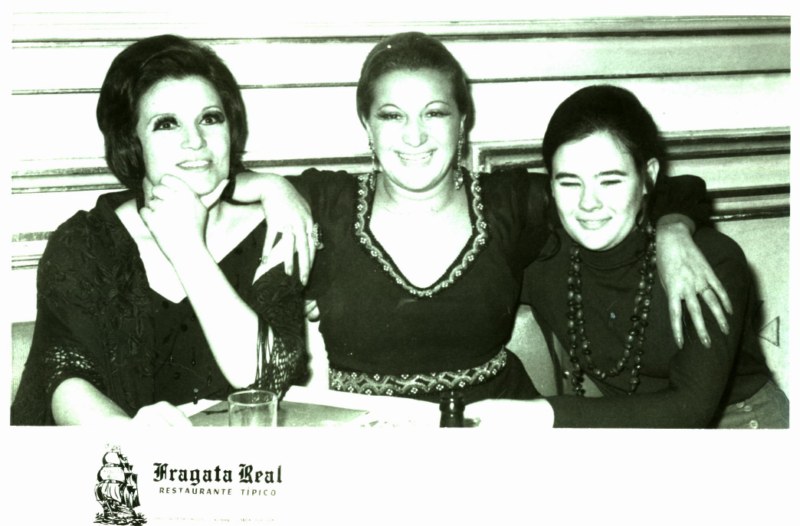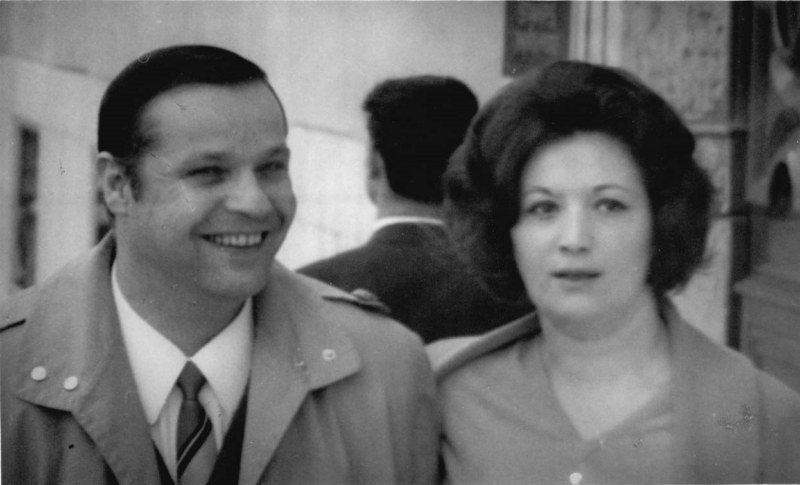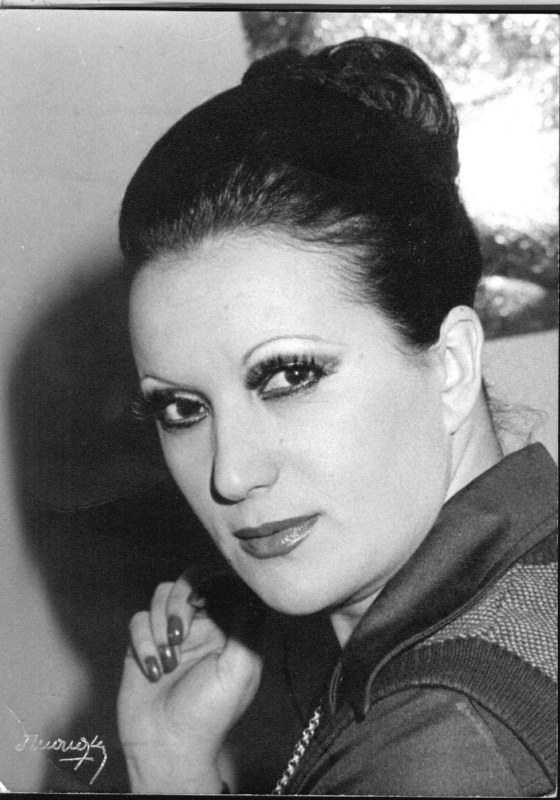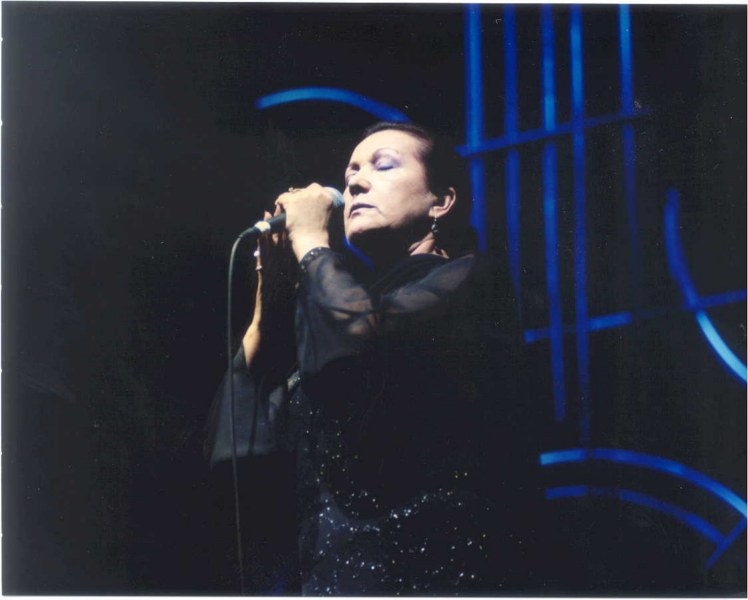Know more:
Beatriz da Conceição
(N. 21 August, 1939 - M. 26 November, 2015)Beatriz da Conceição was born on the 21 August 1939 in Porto, a city where she lived until the day she travelled to Lisbon and visited Fado house Márcia Condessa. There she crooned a few quatrains, was invited to sing and then invited to stay – which she did. Later on she performed at several fado houses, namely “Adega Machado” and “Taverna do Embuçado” and more recently at restaurant “Senhor Vinho”.
Her major reference is Lucília do Carmo; “… the muse of my inspiration, whom I longed to hear singing…”.
Like most fado singers of her generation, she began to sing in the theatre in 1966, with special reference to songs like “Fado para esta noite” and “John Português”.
She was always keen on having a repertoire of her own and went as far as buying fado lyrics by poets she was fond of in the beginning of her career. Many were the authors who wrote poems for her, namely Domingos Gonçalves Costa, João Dias, Linhares Barbosa, César d' Oliveira, Ary dos Santos, Paulo de Carvalho, Fernando Tordo and Vasco de Lima Couto. Ary dos Santos and Fernando Tordo created "Fado da Bia", the name her family calls her at home.
Beatriz da Conceição participated in television programmes by Filipe la Féria, like "Grande Noite" (1990) and "Cabaret" (1994).
In 1996 Beatriz da Conceição was invited to participate in a unique experiment, the “Tears of Lisbon” project, directed by Paul Van Devel and the Huelgas Ensemble. It consisted in mixing Fado themes with sixteenth-century Portuguese music. In the framework of this project, Beatriz da Conceição, António Rocha (another participant) and the musicians had the opportunity of touring the Benelux in concert.
Beatriz da Conceição is usually considered an irreverent interpreter, due to a very special way of feeling and singing the Fado.
Her career included several trips abroad to perform for Portuguese communities, in the United States of America and Canada.
In the 1990’s she was invited to participate in international music festivals, performing for cosmopolitan audiences.
Among her recordings, special reference should be made to “Sou um fado desta idade” (1996), by Emi-Valentim de Carvalho, and “Beatriz da Conceição” (1997), in collection “O Melhor dos Melhores” by Movieplay.
In recent years, in addition to the spaces of the fado houses (currently integrating the casts of Senhor Vinho and the Café of the Museum of Fado), he has made several shows of which we highlight the following: Casa da Música in Porto (2007), “Festa do Fado ”, Castelo de São Jorge, Lisbon (2007),“ Vozes do Fado ”, Ruy de Carvalho Municipal Auditorium, in Carnaxide (2008),“Gala do Fado Carlos Zel”, at Casino Estoril (2008).
In May 2008 Beatriz da Conceição was distinguished with the Amália Rodrigues Foundation “Prémio Carreira”, and in that same month she was honored in her hometown, with the show “Alma Lusitana”, which took place at Teatro Sá da Bandeira.
Beatriz died on November 26th, 2015.
Source:

Deolinda Rodrigues, Beatriz da Conceição e Maria Manuela Fragata Real, s/d.

Manuel Fernandes e Beatriz da Conceição, s/d.

Beatriz da Conceição, s/d.

Beatriz da Conceição, s/d.
-
Meu Corpo Beatriz da Conceição (Ary dos Santos / Fernando Tordo)